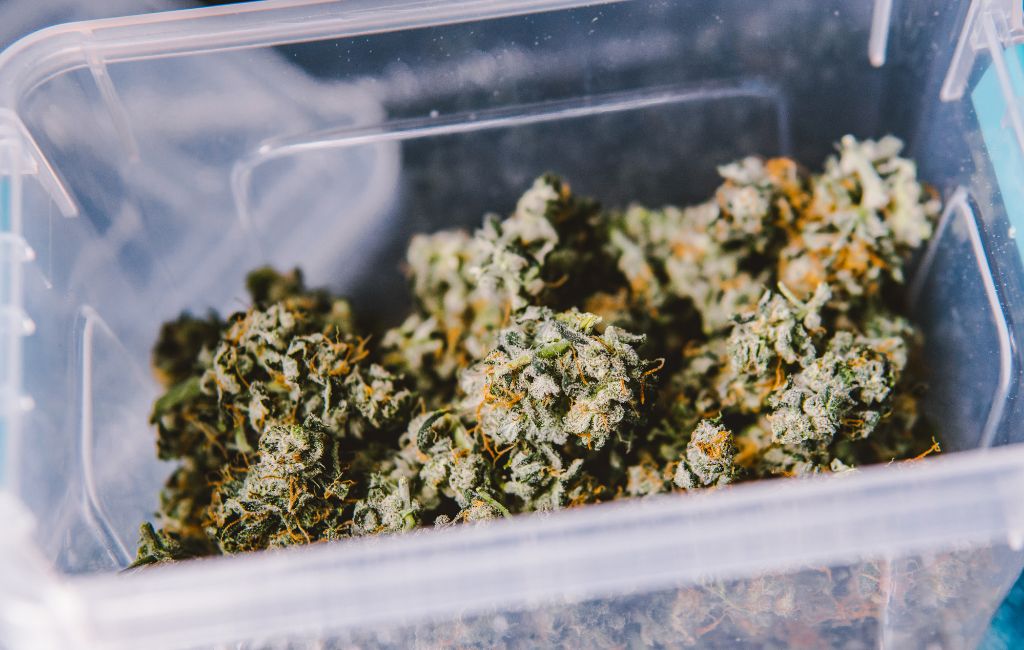Organic THCa Flower from Nature
The world of cannabis is vast and varied, with numerous strains and products available to consumers. Among these, the organic THCa flower has gained significant attention. This article explores the unique attributes of organic THCa flower, its benefits, cultivation practices, and its place in the cannabis market.
Understanding THCa
What is THCa?
THCa, or tetrahydrocannabinolic acid, is a non-psychoactive cannabinoid found in raw cannabis plants. Unlike THC, which is known for its psychoactive effects, THCa does not produce a “high” when consumed in its natural form. This makes it an appealing option for those seeking the therapeutic benefits of cannabis without the psychoactive effects.
Benefits of THCa
Research suggests that THCa may offer a range of health benefits. Some potential advantages include:
- Anti-inflammatory properties: THCa may help reduce inflammation, making it beneficial for conditions like arthritis.
- Neuroprotective effects: Studies indicate that THCa might protect brain cells, potentially aiding in the treatment of neurodegenerative diseases.
- Anti-emetic properties: THCa could help alleviate nausea and vomiting, which is particularly useful for patients undergoing chemotherapy.
The Rise of Organic Cannabis
Why Choose Organic?
Organic cannabis is cultivated without synthetic fertilizers, pesticides, or genetically modified organisms. This approach not only benefits the environment but also ensures a cleaner product for consumers. Organic farming practices enhance soil health, promote biodiversity, and reduce pollution.
The Organic Certification Process
Obtaining organic certification for cannabis involves rigorous standards. Growers must adhere to specific guidelines, including:
- Soil management: Utilizing natural compost and avoiding chemical fertilizers.
- Pest control: Employing natural predators and organic pesticides.
- Water conservation: Implementing efficient irrigation systems to minimize water usage.
Cultivating Organic THCa Flower
Ideal Growing Conditions
Organic THCa flower thrives in specific conditions. Key factors include:
- Climate: A temperate climate with adequate sunlight is ideal for cannabis cultivation.
- Soil: Rich, well-drained soil with a balanced pH level supports healthy plant growth.
- Water: Consistent watering is crucial, but overwatering should be avoided to prevent root rot.
Sustainable Practices
Sustainability is at the heart of organic cannabis cultivation. Some practices include:
- Crop rotation: Rotating crops to maintain soil fertility and prevent pest buildup.
- Companion planting: Growing complementary plants to enhance growth and deter pests.
- Renewable energy: Utilizing solar or wind power to reduce carbon footprint.
The Market for Organic THCa Flower
Consumer Demand
The demand for organic cannabis products is on the rise. Consumers are increasingly health-conscious and environmentally aware, driving the market for organic THCa flower. This trend is reflected in the growing number of dispensaries offering organic options.
Economic Impact
The organic cannabis market presents significant economic opportunities. According to a report by Grand View Research, the global legal marijuana market size was valued at USD 9.1 billion in 2020 and is expected to expand at a compound annual growth rate (CAGR) of 26.7% from 2021 to 2028. The organic segment is a key contributor to this growth.
Case Studies
Successful Organic Cannabis Farms
Several farms have successfully embraced organic practices. For instance, Aster Farms in California focuses on sustainable cultivation methods, producing high-quality organic cannabis. Their commitment to environmental stewardship has earned them a loyal customer base.
Consumer Testimonials
Many consumers report positive experiences with organic THCa flower. Testimonials highlight the product’s purity, effectiveness, and the peace of mind that comes with knowing it is free from harmful chemicals.
Challenges and Considerations
Regulatory Hurdles
Navigating the regulatory landscape for organic cannabis can be challenging. Different regions have varying standards and requirements, making compliance a complex process for growers.
Cost Implications
Organic cultivation often involves higher costs due to labor-intensive practices and certification fees. These costs can impact pricing, making organic products more expensive for consumers.
Conclusion
Organic THCa flower represents a promising segment within the cannabis industry. Its potential health benefits, coupled with environmentally friendly cultivation practices, make it an attractive option for consumers and growers alike. As the market continues to evolve, the demand for organic cannabis products is expected to grow, offering new opportunities for innovation and sustainability in the industry.
